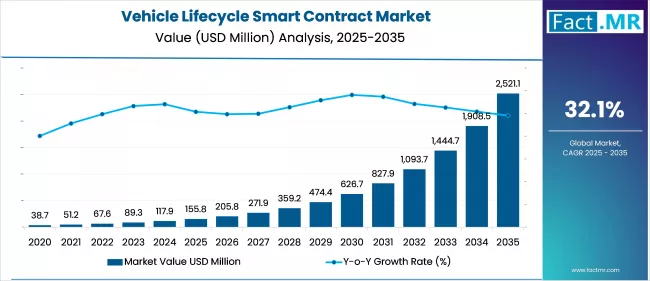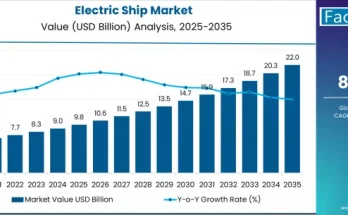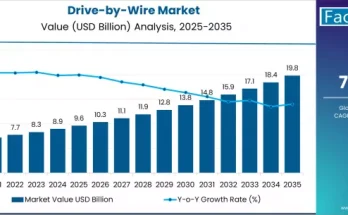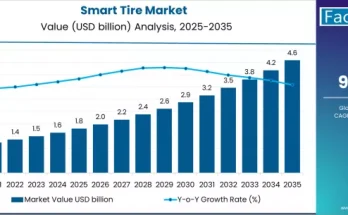The automotive industry is experiencing a transformative shift as digital technologies redefine vehicle ownership, financing, and maintenance processes. The vehicle lifecycle smart contract market is emerging as a key enabler of this change. By leveraging blockchain technology, smart contracts offer automated, secure, and transparent solutions for managing vehicle data, transactions, and regulatory compliance throughout a vehicle’s lifecycle.
From manufacturing and registration to insurance, resale, and decommissioning, smart contracts streamline operations and reduce administrative inefficiencies. The adoption of these contracts is increasingly seen as a strategic approach to enhance trust, improve data integrity, and optimize processes in the automotive ecosystem.
Market Overview:
Vehicle lifecycle smart contracts utilize blockchain technology to automate and verify actions based on predefined conditions, minimizing the need for intermediaries. These contracts facilitate secure and real-time management of critical vehicle information, such as ownership records, service history, mileage, accident reports, and regulatory compliance.
Key benefits include enhanced transparency, reduced fraud, faster transaction processing, and improved collaboration among stakeholders such as manufacturers, dealerships, insurers, finance companies, and government authorities. Additionally, smart contracts enable the creation of tamper-proof digital records that are accessible across multiple platforms, ensuring reliability and trust in vehicle transactions.
The market is gaining momentum as automotive companies embrace digitalization, regulatory authorities advocate for standardized digital records, and consumers demand secure and seamless vehicle ownership experiences.
Regional Insights:
North America
North America leads the adoption of vehicle lifecycle smart contracts, supported by a well-established automotive industry, advanced blockchain infrastructure, and favorable regulatory environments. The region is witnessing rapid integration of smart contracts in vehicle registration, leasing, and insurance operations.
Europe
Europe is a key market driven by stringent vehicle compliance regulations, data privacy standards, and a high degree of automotive digitalization. Smart contract adoption is enabling enhanced lifecycle management and compliance monitoring across fleets and individual vehicles.
Asia-Pacific
Asia-Pacific is emerging as a significant growth region due to the expansion of automotive manufacturing, increasing vehicle sales, and government initiatives promoting blockchain technology. Fleet operators and vehicle service providers in the region are increasingly exploring smart contracts to manage complex lifecycle data efficiently.
Key Trends & Forecast:
- Digitization of Vehicle Ownership and Registration
Smart contracts enable automated vehicle registration, title transfers, and ownership verification. This reduces administrative delays, minimizes errors, and ensures regulatory compliance. - Integration with Insurance Services
Vehicle lifecycle smart contracts facilitate real-time insurance verification, automated claim processing, and fraud detection. Insurers can leverage tamper-proof vehicle data for accurate policy issuance and claim settlement. - Fleet Management and Telematics
Fleet operators are adopting smart contracts to track vehicle usage, service schedules, and maintenance histories. Integration with telematics allows real-time monitoring and predictive maintenance, improving operational efficiency and reducing downtime. - Secure Vehicle Resale and Financing
Smart contracts ensure transparent vehicle history and secure transfer of ownership during resale or financing. Buyers and lenders gain confidence through immutable digital records, reducing disputes and enhancing trust in the secondary market. - Collaboration Across Stakeholders
Automakers, dealerships, insurers, financiers, and regulatory authorities are collaborating to implement blockchain-based smart contract solutions. Such partnerships facilitate data standardization, interoperability, and enhanced lifecycle management.
Applications & End-Use Outlook:
Automobile Manufacturers
Manufacturers leverage smart contracts for supply chain management, vehicle registration, warranty verification, and post-sale services. Blockchain-enabled lifecycle records strengthen brand trust and operational transparency.
Dealerships and Resale Market
Dealerships utilize smart contracts for secure ownership transfers, accurate service histories, and transparent resale processes. Buyers benefit from reliable vehicle records, which enhance resale value and trust.
Insurance Providers
Insurers integrate smart contracts to automate policy issuance, monitor vehicle usage, and process claims efficiently. Digital verification of vehicle history reduces fraud and operational costs.
Fleet Operators and Mobility Services
Fleet managers use smart contracts to maintain service records, track mileage, and schedule maintenance. Integration with telematics and predictive analytics optimizes fleet performance and reduces operational risks.
Government and Regulatory Agencies
Smart contracts facilitate regulatory compliance by maintaining immutable records of vehicle ownership, insurance, and emissions compliance. Automated verification reduces administrative burdens and enhances transparency in registration and licensing processes.
Technological Landscape:
Blockchain Integration
Blockchain ensures a secure, decentralized, and tamper-proof record of all vehicle lifecycle transactions. It serves as the backbone for smart contract functionality, offering transparency and traceability.
IoT and Telematics
Connected sensors and telematics devices provide real-time data on vehicle health, usage patterns, and performance. This data feeds into smart contracts to automate maintenance, insurance, and compliance actions.
Cloud-Based Platforms
Cloud technology enables seamless data sharing across manufacturers, dealerships, insurers, and regulators. Centralized cloud platforms improve accessibility and enhance smart contract efficiency.
Artificial Intelligence and Analytics
AI algorithms analyze vehicle data to detect anomalies, predict maintenance needs, and optimize lifecycle operations. Insights generated from analytics enhance decision-making for all stakeholders.
Cybersecurity Measures
Robust cybersecurity frameworks protect sensitive vehicle and owner data. Encryption, multi-factor authentication, and blockchain-based verification ensure data integrity and prevent unauthorized access.
Industry Outlook & Future Opportunities:
The future of the vehicle lifecycle smart contract market is characterized by full-scale digital integration across automotive processes. Emerging opportunities include:
- Automated cross-border vehicle registration and compliance
- Integration with autonomous and connected vehicle platforms
- Expansion of predictive maintenance and AI-driven lifecycle management
- Adoption in mobility-as-a-service (MaaS) ecosystems
- Collaboration between automotive, insurance, and fintech sectors for end-to-end lifecycle solutions
Smart contracts are poised to redefine trust and efficiency in vehicle transactions, enabling a seamless, secure, and transparent automotive ecosystem.
Conclusion:
The vehicle lifecycle smart contract market is transforming the automotive industry by automating transactions, securing vehicle data, and enhancing operational transparency. By leveraging blockchain, IoT, AI, and cloud technologies, stakeholders can improve efficiency, reduce fraud, and create a seamless ownership experience. As automotive digitalization continues, vehicle lifecycle smart contracts are set to become a foundational component of future mobility solutions, supporting sustainable, secure, and intelligent vehicle management.
Browse Full Report – https://www.factmr.com/report/us-vehicle-lifecycle-smart-contract-market



